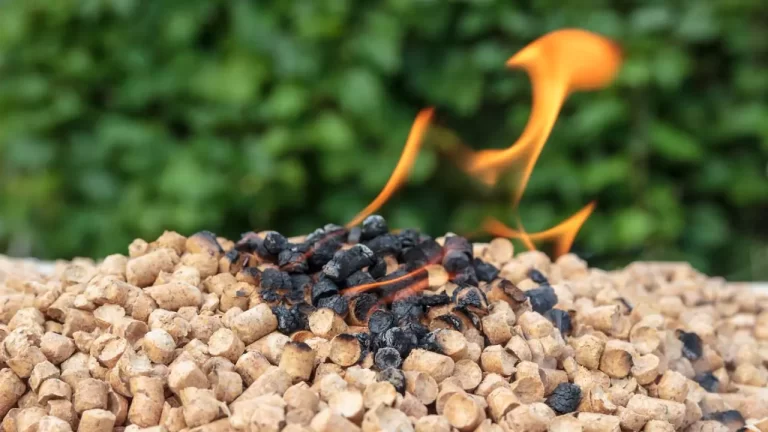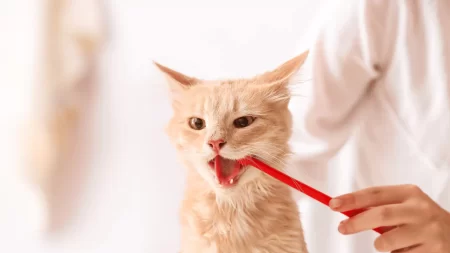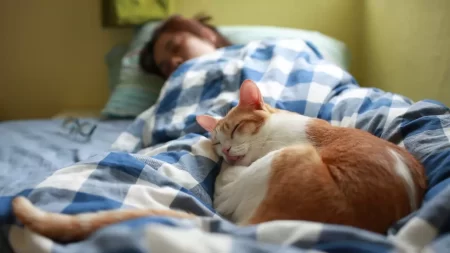No, you should not burn wood cat litter. While wood cat litter is made of natural materials like pine or cedar, burning it can release harmful toxins into the air and pose potential legal and safety issues. There are better, more environmentally-friendly ways to dispose of used wood cat litter.
What is Wood Cat Litter?
Wood cat litter is a natural and biodegradable alternative to traditional clay-based litters. It is typically made from materials like pine, cedar, or other soft woods. The wood is ground into a sawdust-like texture that absorbs moisture and odors. The natural smell of pine and cedar also helps minimize odors. Wood cat litter is more environmentally-friendly since it comes from sustainable sources and can be composted. The biggest benefit of wood litter is its superior absorption and odor control.
Benefits of Wood Cat Litter
There are several advantages to using wood cat litter:
- Natural and sustainable – Made from renewable pine, cedar, or other soft woods. More eco-friendly than clay.
- Superior odor control – The natural aromas of pine and cedar help neutralize odors and smells.
- Highly absorbent – The sawdust texture quickly soaks up urine and other messes. Less tracking of litter.
- Low tracking – Wood granules are heavier than clay and don’t stick to paws as much.
- Compostable – Can be added to compost bins after use unlike traditional clay litters.
- Soft texture – More comfortable on cats’ paws than gritty clay litters.
Potential Risks of Burning Wood Cat Litter
While wood cat litter has its benefits, burning used litter can be hazardous:
- Releases toxic smoke – When burned, the pine/cedar sawdust releases harmful smoke containing carbon monoxide, sulfur dioxide, and other toxins. This can be dangerous if inhaled.
- Fire hazard – The fine sawdust is flammable and could easily spark a destructive fire, especially if burned indoors. Proper containment and fire safety is crucial.
- Residual chemicals – Any chemicals or perfumes used in scented wood litters also get released into the air through burning.
- Respiratory irritation – Smoke from burning wood can irritate lungs and cause coughing or breathing issues.
Is Burning Wood Cat Litter Legal?
In most areas, it is illegal to burn household trash, including used cat litter. Many municipalities classify cat litter as solid waste or a pet waste product, making it unlawful to burn. Burning litter often violates local ordinances prohibiting open fires, outdoor burning, or air pollution. Fines for illegal burning typically start at $50 and up. So check your local regulations before attempting to burn any used cat litter.
How to Safely Dispose of Wood Cat Litter?
There are several environmentally-friendly ways to dispose of wood cat litter:
- Compost – Allow used litter to fully biodegrade by adding it to a compost pile or bin. This is the best eco-option.
- Trash – Seal used litter in bags and place in normal household trash receptacles for landfill disposal.
- Flush – Wood litter can be flushed down the toilet unless regulations prohibit disposing pet waste via sewer/septic systems.
- Trash collection – Some waste management companies offer special pet waste disposal services that allow used litter to be thrown away with normal trash collection.
- Drop-off – Bring used litter to a local solid waste facility or recycling center if they accept pet wastes. Some charge small drop-off fees.
Alternatives to Burning Wood Cat Litter
Instead of burning wood cat litter, here are some better uses for unused or wet litter:
- Fertilizer – Mix used litter into gardens as an all-natural fertilizer and soil conditioner.
- Ice traction – Sprinkling unused litter provides traction on icy sidewalks and driveways.
- Compost – Add used litter to compost piles as an organic additive.
- Deodorizer – Sprinkle fresh litter in smelly areas like trash cans or basements to absorb odors.
- Crafts – Wood pellets can be upcycled into cat toys, art projects, and craft creations with a bit of creativity.
So while burning wood cat litter may seem like an easy disposal method, it carries potential risks and legal issues. Disposing of litter in an eco-friendly way like composting is safer and more sustainable. And unused litter can be repurposed for other handy uses around the home.







